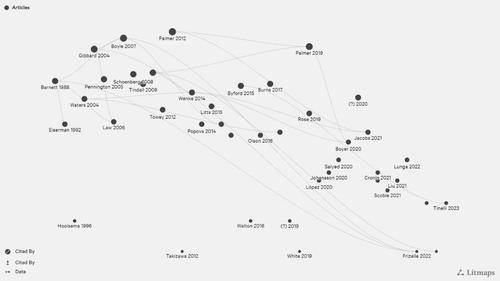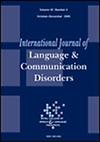Economic Evaluations of Speech and Language Therapy Interventions: A Scoping Review
Abstract
Background
With constrained funding and increasing demand, the pressures on health and care services globally continue to grow. Given the challenges faced, it is imperative that services and interventions demonstrate cost-effectiveness, as well as patient/service-user and societal benefits, to maximize impact. Research has started to explore the cost-effectiveness of speech and language therapy (SLT) interventions, but little is known about this body of evidence overall. Given the increasing demand for economic information by different decision-makers, an overall understanding of the current evidence base is needed. Such an evaluation should map and assess the current evidence to identify key gaps, areas of strength, and recommendations for future economic evaluations of SLT.
Aim
To identify the extent and type of economic evaluations assessing the cost (including cost-effectiveness) of SLT interventions.
Methods
A scoping review was conducted identifying studies across seven key databases from date of inception to 20 October 2023. Studies were included if they assessed any type of cost of an intervention which was primarily delivered (directly or indirectly) by a speech and language therapist. A narrative synthesis was undertaken and clustered around common populations of interest, including adults post-stroke, adults with aphasia or dysarthria, adults with Parkinson's disease, adults with head and neck cancer, and children, young people, and adults with a range of conditions.
Outcomes and Results
This scoping review identified 52 studies which have been published over three and a half decades. Recently, there has been a notable increase in the number of studies, specifically cost-effectiveness and cost-utility analyses; however, there were limited internal citations and a substantial variation in populations and interventions assessed by these studies. Economic evaluations were carried out alongside various effectiveness study designs, using different units of analysis, time horizons, and perspectives.
Conclusion
Although a small number of studies have begun to explore the economic aspects of SLT, evidence in this area remains relatively scarce, highlighting the need to prioritize further economic evaluations. Given the substantial heterogeneity and limited interconnectivity within the existing evidence base, it is crucial to strategically organize and coordinate efforts to optimize future research. Future economic evaluations of SLT interventions should ideally run alongside randomized controlled trials and use decision-analytic modelling techniques to strengthen the economic evidence base.
WHAT THIS PAPER ADDS
- As pressures grow on health and social care services, it is increasingly important that the care and support provided is shown to be both effective and cost-effective, informing those who plan, provide, receive and pay for the services. Although some research has begun to examine the cost-effectiveness of speech and language therapy (SLT) interventions, the overall extent and depth of this body of evidence remain unknown.
- This scoping review offers an overview of the maturity, depth, and extent of the evidence assessing the costs and cost-effectiveness of interventions provided by SLT. Although the evidence base continues to grow, it appears to lack coherence in its development, necessitating a strategically planned approach to optimize and coordinate efforts to the benefit of the service and those using it.
- This scoping review has identified 52 studies which assessed the cost of SLT. The evidence from these studies can help us better understand the economic value of SLT. However, given the relative immaturity of the evidence base and lack of coordination across the findings, further research is required. This research should draw from the findings of this review and would ideally be part of a coherent, coordinated effort to develop a full understanding of the economic value of SLT across different clinical areas.


 求助内容:
求助内容: 应助结果提醒方式:
应助结果提醒方式:


